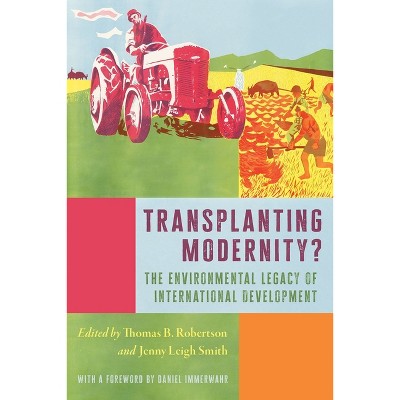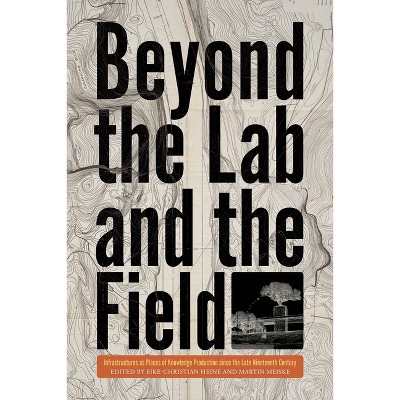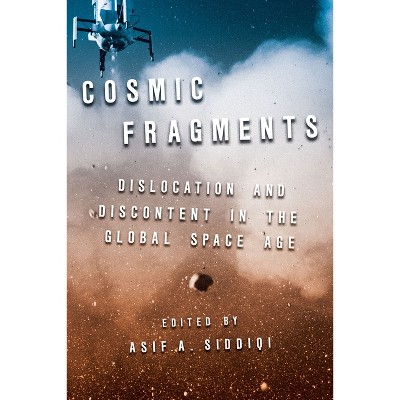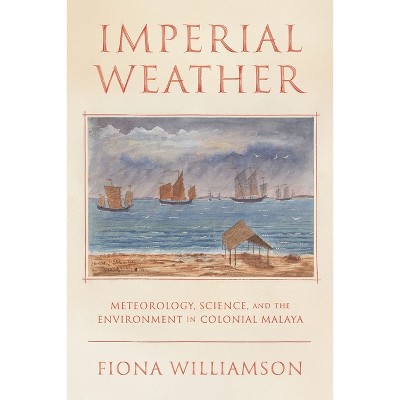The Globalization of Wheat - (Intersections) by Marci Baranski (Hardcover)

$55.00 sale price when purchased online
$60.00 list price
Target Online store #3991
About this item
Highlights
- In The Globalization of Wheat, Marci R. Baranski explores Norman Borlaug's complicated legacy as godfather of the Green Revolution.
- About the Author: Marci R. Baranski is an interdisciplinary scientist and historian working in the field of climate change mitigation in agriculture.
- 256 Pages
- Science, History
- Series Name: Intersections
Description
About the Book
Debunks Myths of the Green Revolution with a Long-Awaited Critique of Wide AdaptationBook Synopsis
In The Globalization of Wheat, Marci R. Baranski explores Norman Borlaug's complicated legacy as godfather of the Green Revolution. Winner of the Nobel Peace Prize in 1970 for his role in fighting global hunger, Borlaug, an American agricultural scientist and plant breeder who worked for the Rockefeller Foundation, left a legacy that divides opinions even today. His high-yielding dwarf wheat varieties, known as miracle seeds, effectively doubled and tripled crop yields across the globe, from Kenya to India and Argentina to Mexico due to their wide adaptation. But these modern seeds also required expensive chemical fertilizers and irrigation, both of which were only available to wealthier farmers. Baranski argues that Borlaug's new technologies ultimately privileged wealthier farmers, despite assurances to politicians that these new crops would thrive in diverse geographies and benefit all farmers. As large-scale monocultures replaced traditional farming practices, these changes were codified into the Indian wheat research system, thus limiting attention to traditional practices and marginal environments. In the shadow of this legacy, and in the face of accelerating climate change, Baranski brings new light to Borlaug's role in a controversial concept in agricultural science.Review Quotes
Leveraging her expertise in biochemistry and her remarkable talent for unraveling complex narratives, Baranski offers much-needed interdisciplinary insight into the history of wide adaptation.-- "Historia Agraria"
The Globalization of Wheat is an important book that should indeed be read and discussed by the international-development community.-- "British Journal for the History of Science"
The Globalization of Wheat offers a critical perspective on the history of technology in the Green Revolution and its implications for current and future agricultural development.-- "Tapuya: Latin American Science, Technology, and Society"
The Globalization of Wheat stands out as one of the most compelling contributions yet to [studies of The Green Revolution.]--Helen Anne Curry
Baranski takes the reader on a tour de force through the intellectual and scientific origins of wide adaptation.--Michele Sollai, Sciences Po
Baranski, who trained in both crop science and the social sciences, offers a holistic critique, skillfully marshaling and integrating evidence from the biological and social realms to support her claims.-- "Journal of Interdisciplinary History"
Her book is a notable contribution to the critical histories of the Green Revolution, and she has opened up lesser-known vistas by keeping the scientific community at the heart of her historical analysis.--Madhumita Saha, Amity University in Uttar Pradesh, India
In this highly original work, Marci Baranski challenges a key claim of twentieth-century scientific ingenuity: wide adaptation. Wide adaptation was needed to make wheat a global crop and launch the Green Revolution of the 1960s. Yet, Baranski asks, what if the research was wrong? What if Norman Borlaug was wrong? Her book is a must-read for anyone interested in knowing how and why the science of the Green Revolution, flawed though it was, continues to garner attention and followers today.--Gabriela Soto Laveaga, Harvard University
This book is a useful addition to the literature, partly because of its close analysis of a central assumption underlying The Green Revolution's breeding strategy, but also because it illustrates how history can inform critique of current agricultural policy.-- "Agricultural History"
This well-researched, well-written, and important book establishes Marci Baranski as one of the best of the new generation of historians of science. The Globalization of Wheat not only peels back the layers of politics behind the Green Revolution's 'miracle seeds' but shows how those events brought about a distorted notion of what we should value in seeds. This is a vital contribution to the ongoing rethinking of this famous episode in agricultural history.--Glenn Davis Stone, author of The Agricultural Dilemma: How Not to Feed the World
About the Author
Marci R. Baranski is an interdisciplinary scientist and historian working in the field of climate change mitigation in agriculture. Since completing her PhD in biology and society at Arizona State University in 2015, Baranski has worked on climate change mitigation policy, research, and implementation in the private and public sectors. She currently works and lives in Bangkok.Dimensions (Overall): 8.5 Inches (H) x 6.5 Inches (W) x 1.5 Inches (D)
Weight: 1.15 Pounds
Suggested Age: 22 Years and Up
Number of Pages: 256
Series Title: Intersections
Genre: Science
Sub-Genre: History
Publisher: University of Pittsburgh Press
Format: Hardcover
Author: Marci Baranski
Language: English
Street Date: November 15, 2022
TCIN: 92123953
UPC: 9780822947349
Item Number (DPCI): 247-18-3855
Origin: Made in the USA or Imported
Shipping details
Estimated ship dimensions: 1.5 inches length x 6.5 inches width x 8.5 inches height
Estimated ship weight: 1.15 pounds
We regret that this item cannot be shipped to PO Boxes.
This item cannot be shipped to the following locations: American Samoa (see also separate entry under AS), Guam (see also separate entry under GU), Northern Mariana Islands, Puerto Rico (see also separate entry under PR), United States Minor Outlying Islands, Virgin Islands, U.S., APO/FPO
Return details
This item can be returned to any Target store or Target.com.
This item must be returned within 90 days of the date it was purchased in store, shipped, delivered by a Shipt shopper, or made ready for pickup.
See the return policy for complete information.











